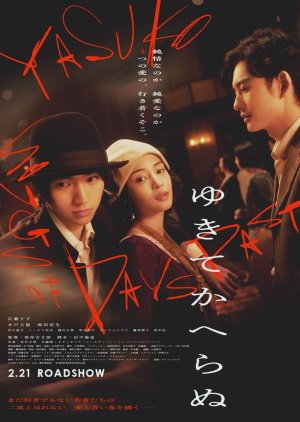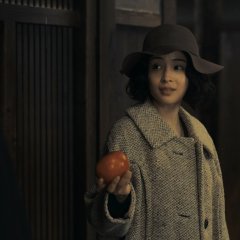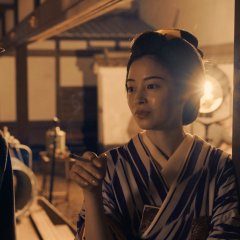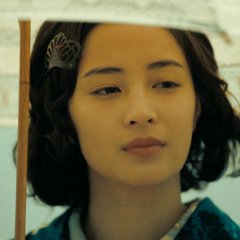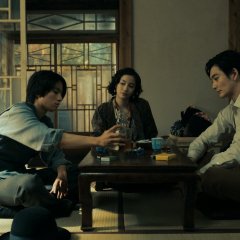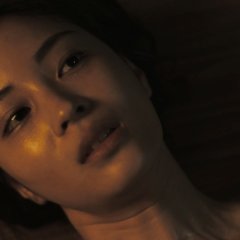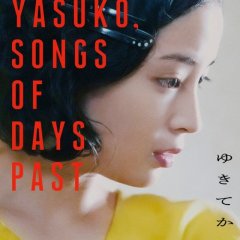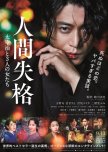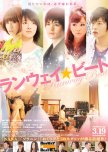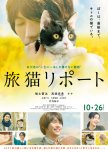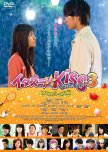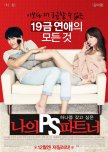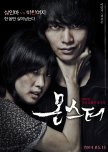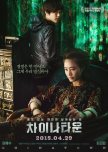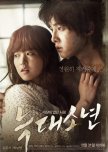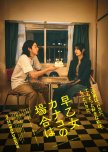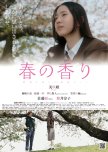In Kyoto, 20-year-old Hasegawa Yasuko is rookie actress. She has yet to show her talents as an actress. She meets 17-year-old Nakahara Chuya, who later becomes a poet. They get attracted to each other and begin to live together. In Tokyo, Chuya’s friend, Kobayashi Hideo, who would later become one of Japan’s leading literary critics, suddenly visits the home where Yasuko and Chuya have moved to. Hideo is also attracted to Yasuko. The complex, yet simple, love triangle between Yasuko, Chuya, and, Hideo beging. (Source: AsianWiki) ~~ Release dates: Feb 4, 2025 (Festival) || Feb 21, 2025 (Cinema) Edit Translation
- English
- Русский
- हिन्दी
- Español
- Native Title: ゆきてかへらぬ
- Also Known As: Yuki Teka Heranu , Yukite Kaheranu
- Director: Negishi Kichitaro
- Screenwriter: Tanaka Yozo
- Genres: Romance, Youth
Cast & Credits
- Hirose SuzuHasegawa YasukoMain Role
- Kido TaiseiNakahara ChuyaSupport Role
- Okada MasakiKobayashi HideoSupport Role
Reviews

This review may contain spoilers
Yasuko and the men she loved.
Inspired by the story of actress Hasegawa Yasuko and her time with the famous poet Nakahara Chuya and prominent literary critic Kobayashi Hideo. The movie transports us to early showa and tells us the complicated story of the bond between Yasuko, Nakahara, and Kobayashi.Starting with the 20 year old Yasuko and 17 year old Nakahara, both spending their youthful days struggling in their craft as they carry a heavy sadness from their childhood. They are eventually drawn by each others' impulsiveness and start living together.
As Nakahara continue to pursue his literary career, they move to Tokyo and there Yasuko and Kobayashi meet through Nakahara himself. Kobayashi was captivated by Yasuko's beauty although his interest on Yasuko started because of his complicated admiration towards the genius Nakahara.
In the movie you could see how Yasuko uses a red umbrella at first which was handed by Nakahara. Further, the two enjoys a persimmon fruit. The flawless persimmon symbolizes the prosperity of each other when they were together—Nakahara recognized as a genius by his colleagues and Yasuko finally getting relevant roles as an actress. They seem to not struggle financially at all. However, the red umbrella symbolizes the intense and turbulent relationship between the two. Nakahara loves Yasuko but he is often immersed in his poems. They always quarrel and turn violent with each other. Nevertheless, he shows his appreciation of her through little things like praising her food despite it being actually bland. Nakahara could also easily match Yasuko's youthful playfulness as shown in the scene where the three dances together.
The shift of Yasuko's love for Nakahara to Kobayashi was marked by the bruised green apple eaten by Kobayashi. Eventually in the scene where the two decides to be together, Kobayashi hands a white umbrella to Yasuko. These two also symbolizes their relationship and life together. The bruised green apple is akin to how the two started to struggle individually when they started living together. Yasuko drowning in her love for Kobayashi, halts her career as an actress and spends her days at home waiting for Kobayashi to come home. Kobayashi on the other hand, struggles to make ends meet as he starts pampering Yasuko too much. Opposite to Nakahara he recognizes that Yasuko can't cook and so they either eat take outs or he cooks for the two of them. Like the bruised apple, they are slowly rotting each other as they spend more time together. On the other hand, the white umbrella can be compared to their relationship. A love that seem calm and clear. However, they could only love each others' good sides.
It is arguable if Yasuko did love the two and vis-a-vis or are these three just dependent on one another. Kobayashi compares him and Nakahara to be Yasuko's crutches—she needed two of them to walk—and removing one will break her balance but removing both would make her strive to walk by herself.
Ultimately, the movie is a visual feast; Hirose Suzu dawning all sorts of costume and really bringing us the undeniable charm of Yasuko; the passage of time clearly depicted by the changing of sceneries through the seasons; numerous center shots; and that showa era yellow lights.
The main cast delivered well as expected of two seasoned movie leads and a promising rising actor. They even got the talented Emoto Tasuku for a very short part of a man who isn't even named. The director usually has famous actors for his movies so this isn't surprising.
The flow of the story on the other hand is a bit inconsistent. It starts with Yasuko clearly being the main lead, the focus was on her. However, as Kobayashi enters the picture, the focus shifts on the complicated relationship of the three. The time skips also sometimes feel too huge. The ending also felt a bit flat and somewhat makes the movie more of a tribute to Nakahara because of how it started with Yasuko meeting him and ended with Yasuko saying goodbye to him in his funeral.
I think the material is good. Although, there aren't that much source of what really transpired between the three, the only fact is that Yasuko was with Nakahara and she eventually left him for Kobayashi but the relationship also did not last. This lack of details in the material may have made it hard to make a cohesive story. They were grasping at Nakahara's favourite poems to find clues about his relationship with Yasuko. However, they made Yasuko the lead and the story isn't told on the point of view of Nakahara so it felt weird with all the poems inserted in the story. The poems may have made more sense if the story was told on the point of view of Nakahara. I would love this to be about Yasuko as told by Nakahara through poems.
Nevertheless, this is a good watch. I liked the dynamics between the three. There are scenes I really loved and overall I enjoyed this.
Was this review helpful to you?

